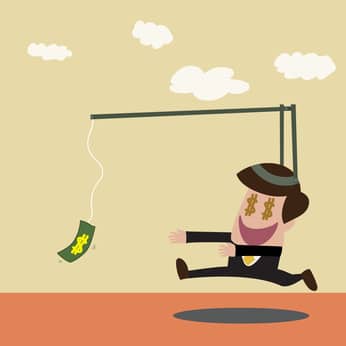 How many times have you thought you’re getting a good deal only to end up paying more than expected?
How many times have you thought you’re getting a good deal only to end up paying more than expected?
An email I received from a reader in Saginaw had me thinking about all the little ways stores try to trip you up. Here are five sneaky (yet totally legal) ways retailers lure you in with sales that actually end up costing you more.
Limiting offer redemptions
This is the tactic that spurred my Saginaw reader to write. One drug store chain lets you rack up bonus points on your loyalty card that can then be redeemed for discounts on future purchases. What you might not be aware is there is a limit to the points you can earn. I’ll let my reader explain:
They advertise if you buy a certain item you will get, for example, 1000 points which equals $1.00 on your next visit.Let’s say on another day you buy a number of items that also give points. In such a case, if you redeem your points from a previous purchase, you aren’t given credit for the new points.
Other stores might advertise sales but limit you to one offer per transaction. Be sure to carefully read the fine print on ad signs or, in the case of loyalty programs, review the terms of use to be sure you know any limits on promotional offers.
Requiring a loyalty card
Along with limiting offers, some stores won’t even give you a sale price unless you have a loyalty card. This used to be a rare tactic, but it’s become commonplace across much of the state with both Spartan Stores and Kroger requiring the use of loyalty cards for any discount. If you are shopping in a new store, stop by the customer service counter first and see if you need a card before you end up with a shockingly large total in the check-out lane.
Single item pricing
You’ve probably heard that if an item is sale priced at 2/$4, you don’t have to buy two items to get the sale price. Instead, you can buy one at $2.00.
However, it appears some retailers are turning the tables on this tactic. I am increasingly seeing retailers who have, for example, a sale price of 2/$4 and then write in tiny print “single item pricing $2.49″ or something similar.
It seems they are now counting on people picking up a single item so they can hit them with a higher price at check-out. As long as they have that small print saying there is a separate single item price, this tactic is perfectly legal. That means you’ll want to quick look at the sale sign before making your purchase.
Issuing coupons good on a future purchase
Another tactic is to offer you money off a future purchase rather than a discount at the register. It could come in the form of a custom coupon or a discount added to a loyalty card.
Either way, the store is sure to come out ahead. Either you forget to use the coupon before it expires, or you make a return trip and possibly buy more than you had planned.
There’s nothing wrong with taking advantage of a deal that includes a discount off a future purchase, but be sure it’s a store you regularly shop. It doesn’t make sense to go far out of your way specifically for a deal like this.
Offer rebates
Finally, stores may offer rebates with the hope you will forget to mail in for your money back. Current figures on how many rebates go unredeemed can be difficult to come by. Conventional wisdom seems to be that between 40-60 percent of rebates are never paid out ““ a figure that may have its origins in a 2005 Bloomberg Businessweek article. I’ve come across reports of redemption rates as low as single digits for smaller rebate values.
Regardless of the actual number, be aware a deal with a rebate attached may not be a deal if you fail to claim your rebate check.
In the end, retailers aren’t in the business of trying to save you as much as possible. No, they would like you to spend as much as possible. Knowing their sneaky ways to get you to buy more is the first step toward paying less.


